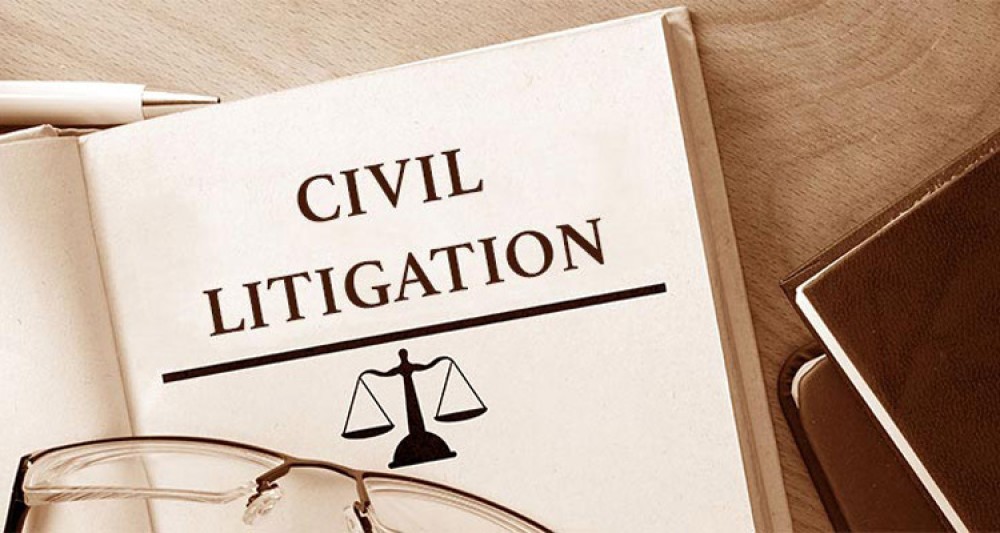
What exactly is a complaint in civil litigation? Discover the legal definition, must-have components, filing steps, common errors, and examples—plus expert tips to start your case strong. Clear, practical, and lawyer-approved!
A complaint is the foundational document that initiates a civil lawsuit. It outlines the plaintiff’s allegations against the defendant and states the legal basis for the claim. If you’re involved in a civil case or simply want to understand how legal complaints work, this comprehensive FAQ guide will provide detailed insights.
FAQs About Complaints in Civil Litigation
What is a Civil Complaint?
A civil complaint is a legal document filed by a plaintiff (the person or entity bringing the lawsuit) against a defendant (the person or entity being sued). It serves as the first formal step in a lawsuit and must be filed in the appropriate court. This document formally notifies the court and the defendant of the dispute and requests legal relief, which could include monetary compensation, injunctive relief, or other remedies.
What Information is Included in a Complaint?
A complaint typically includes several key components:
What are the Common Types of Civil Complaints?
Civil complaints vary depending on the nature of the legal dispute. Some of the most common types include:
What Happens After a Complaint is Filed?
Once a complaint is filed with the court, several procedural steps follow:
What is Service of Process?
Service of process is the legal procedure of delivering court documents, including the complaint and summons, to the defendant. Proper service ensures that the defendant is aware of the lawsuit and has an opportunity to respond. Service can be carried out in several ways:
How Does a Defendant Respond to a Complaint?
A defendant has several options when responding to a complaint:
Can a Complaint Be Amended?
Yes, a plaintiff may amend a complaint to correct errors, add new facts, or include additional defendants. Courts typically allow amendments, especially if requested early in the litigation process. However, once a case progresses, amendments may require court approval.
What Happens If a Defendant Ignores a Complaint?
If a defendant fails to respond within the required timeframe, the court may issue a default judgment in favor of the plaintiff. This means the plaintiff automatically wins the case, and the court may award the requested damages or relief without further proceedings.
How Long Does a Plaintiff Have to File a Complaint?
The time limit for filing a complaint is determined by the statute of limitations, which varies based on the type of claim and jurisdiction. For example:
Can a Complaint Be Dismissed?
Yes, a complaint may be dismissed for several reasons:
What is a Class Action Complaint?
A class action complaint is filed on behalf of multiple plaintiffs who have suffered similar harm due to a defendant’s actions. These cases often involve product liability, data breaches, or corporate fraud.
Do I Need a Lawyer to File a Complaint?
While individuals can file complaints pro se (without a lawyer), hiring an attorney ensures compliance with procedural rules and increases the likelihood of success.
How Much Does It Cost to File a Complaint?
Filing fees vary by court and case type. Costs typically range from $100 to $500, but fee waivers may be available for low-income plaintiffs.
What is a Summons in Civil Litigation?
A summons is a document that notifies the defendant of the lawsuit and provides instructions for responding within a specified timeframe.
What Happens If a Complaint is Found to Be Frivolous?
A frivolous complaint (one lacking legal merit) may be dismissed, and the plaintiff could face penalties such as fines or court sanctions.
How Do Courts Determine If a Complaint Has Merit?
Courts assess whether the complaint presents legally valid claims based on facts and applicable laws. Judges may dismiss cases that do not meet these requirements.
What Is a Cross-Complaint?
A cross-complaint is filed by a defendant against another party, which could include the original plaintiff or a third party, asserting related claims.
How Long Does It Take for a Complaint to Be Resolved?
The timeline depends on case complexity, court backlog, and settlement discussions. Some cases resolve in months, while others take years.
Can a Complaint Be Withdrawn?
Yes, a plaintiff can voluntarily dismiss a complaint before trial, sometimes without prejudice (meaning it can be refiled later).
Where Can I Get Legal Help for Filing a Complaint?
If you need assistance drafting or filing a civil complaint, consulting an experienced attorney is recommended.
Whether you’re new to civil litigation or a busy attorney juggling deadlines, Legal Husk can help you craft a clear, compliant, and compelling complaint that gives your case a strong start. From formatting to strategy, we’ve got your back.
📌 Need help drafting your legal complaint?
Let our experts step in and take the stress out of the process.
📞 Reach out today or visit us online to get started.
👉 Visit:
🔗 legalhusk.com
🔗 legalhusk.com/services
🔗 legalhusk.com/services/civil-litigation
🔗 legalhusk.com/about-us
Start strong—start with Legal Husk.
In civil litigation, the complaint isn’t just paperwork—it’s your case’s first impression. A strong complaint sets the tone, shows the court you mean business, and increases your chances of success. Whether you're suing for breach of contract or responding to a defamation claim, getting the details right from the start is essential.
Need help putting your legal story into the right words? Legal Husk is your drafting partner from day one.
Contact Legal Husk and let us draft your next motion with precision and clarity.
Whether you are dealing with a complex family matter, facing criminal charges, or navigating the intricacies of business law, our mission is to provide you with comprehensive, compassionate, and expert legal guidance.